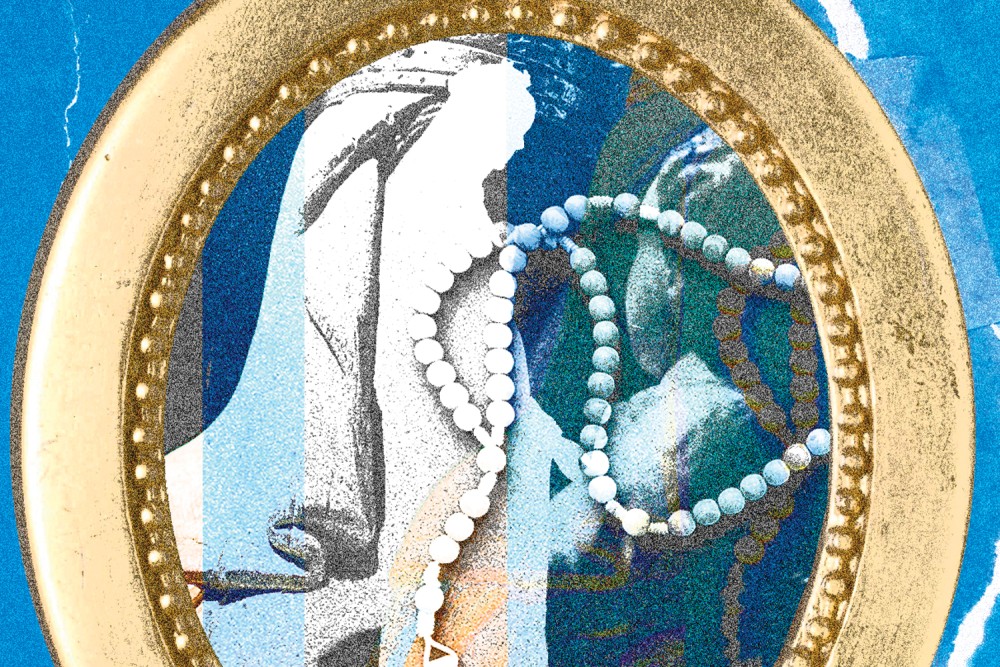My struggle with Mary
Can Jesus’ mother be redeemed from the church’s tendency to parcel her up into a patriarchal box and then label it “glory”?

(Century illustration)
I’m not the first and I won’t be the last person to have an ambivalent relationship with Mary, the mother of Jesus. There have been times in my life when I’ve held a significant personal devotion to her. I found comfort in praying the rosary. Even now, decades on from using the rosary as a dedicated focus for prayer, I continue to be moved by its acknowledgment that “the Lord is with” Mary, as well as its recognition of her eternal ministry of prayer: “Pray for us now and at the hour of our death.” The idea that Mary is the queen of heaven is one to conjure with. It feeds my poetic imagination.
Yet it is also fair to say that Mary can be a turnoff. She has been held up, especially by the Catholic Church, as the ultimate role model for women, the icon of femininity. In the rosary, Mary’s value is shaped around her motherhood: “Blessed art thou among women, and blessed is the fruit of thy womb, Jesus.” If I am indeed in awe of Mary as the theotokos—the God bearer—many feminists remind us that when Mary’s blessedness is framed merely in terms of her motherhood, this can be bad news for ordinary women.
In her classic essay “Stabat Mater,” Julia Kristeva points out how the church’s genius for making Mary the icon of faithful womanhood is a double-edged sword: Mary gives women an image of holiness and female power to which to aspire, yet one which no woman can actually achieve. For no ordinary woman can bear a child and remain perpetually sinless.





